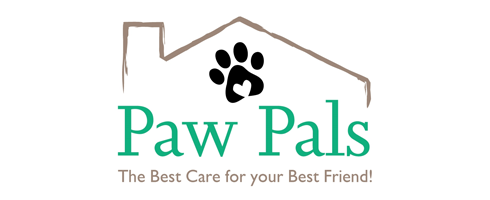Embarking on the journey of pet ownership is a joyous experience, but it often comes with the added responsibility of managing the associated costs. Whether you’re a prospective pet owner or navigating changes in your budget with existing furry companions, there are practical ways to ensure your pets remain happy and healthy without breaking the bank.
Choosing the Right Pet for Your Budget
Selecting the ideal pet that aligns with your lifestyle and budget is a crucial step in ensuring a harmonious and financially sustainable companionship. It’s essential to recognize that various animals not only bring unique joys but also come with distinct financial implications.
Larger pets, such as dogs and cats, often necessitate immediate attention and substantial expenses. These may include high-quality food, professional training, and regular veterinary care, encompassing vaccinations and potential treatments for common issues like fleas and ticks.
Smaller Animals
For those operating within a tighter budget, the prospect of caring for smaller pets emerges as a viable and often more economical alternative. Hermit crabs, frogs, and fish, for instance, are known for their relatively modest upkeep requirements. A small tank or enclosure, along with essential items like light and filtration, can suffice for these aquatic or semi-aquatic companions. This minimalistic approach not only keeps initial costs down but also streamlines the day-to-day care routine.
Similarly, small caged animals such as hamsters, Guinea pigs, rats, and mice offer a delightful option for budget-conscious pet owners. The primary consideration here is the choice of an appropriate cage and bedding material. Beyond this, factors like food and water provisions, along with engaging toys like running balls and hamster wheels, contribute to the overall well-being of these diminutive companions. The compact size of these pets not only makes them more manageable in terms of space but also reduces the financial commitment associated with their care.
Choosing a smaller, more affordable pet can serve as a stepping stone for those considering more intricate or expensive companions in the future. It offers a valuable opportunity to understand the dynamics of pet ownership, gauge the impact on household routines, and assess how well your budget accommodates the responsibilities of caring for an animal.
Adoption vs. Purchasing
Choosing between adoption and purchasing when bringing a new pet into your life is a decision that extends beyond financial considerations; it speaks to the ethical dimensions of responsible pet ownership. Adopting a pet from a reputable shelter is not only cost-effective but also a compassionate choice that has far-reaching positive effects.
Adoption Shelters
Reputable shelters house a diverse array of animals, ranging in size, age, and breed. The adoption fees charged by these shelters often cover essential veterinary procedures, such as vaccinations and spaying/neutering. This means that, from the outset, adopting a pet from a shelter can provide substantial savings compared to the potential cumulative costs associated with purchasing a pet from other sources.
Beyond the economic advantages, choosing adoption aligns with principles of ethical pet ownership. Shelters typically prioritize the well-being of animals and work towards finding them loving homes. By adopting, you play a vital role in reducing the population of homeless animals, giving an animal a second chance at a happy life.
Breeders
On the other hand, purchasing a pet from breeders or mills may seem economical at first glance, but the hidden costs and ethical concerns associated with these practices can outweigh any initial financial savings. Animals bred in mills often endure cramped and inhumane conditions, leading to health and behavioral issues that may surface later in life. Supporting such breeding practices inadvertently contributes to the perpetuation of unethical treatment of animals.
Furthermore, the initial cost of purchasing a pet is only the tip of the iceberg. Unexpected health issues or behavioral challenges may arise due to inadequate breeding practices, leading to additional veterinary bills and emotional strain for the owner. In contrast, adopting from a shelter often provides comprehensive health assessments, reducing the likelihood of unforeseen medical expenses.
Keeping Costs Low
Efficiently managing your pet’s expenses is a crucial aspect of responsible pet ownership. To keep costs low without compromising your pet’s well-being, consider implementing a strategic approach that combines smart shopping habits, preventive healthcare measures, and regular veterinary care.
Shop Local
Researching local stores is the first step in optimizing your pet-related expenses. Look for retailers that offer affordable yet high-quality pet supplies and medications. Some farming supply stores or online platforms may provide cost-effective options without sacrificing the standard of care. By taking the time to explore various options, you can identify sources that align with your budgetary constraints.
Couponing
Utilizing coupons is a savvy way to make your pet care expenses more manageable. Many pet supply stores and online platforms offer discounts or promotional deals. Keep an eye out for these opportunities, and consider subscribing to newsletters or loyalty programs, as they often provide exclusive access to savings. Couponing not only reduces immediate costs but also allows you to stock up on essential items at a lower price.
Loyalty Programs
Participating in loyalty programs offered by local pet stores can yield long-term benefits. Many of these programs provide discounts, cashback, or even free products after a certain number of purchases. Consistent use of a loyalty card or app can lead to substantial savings over time, making your regular pet-related purchases more budget-friendly.
Food Choice
Feeding your pet high-quality, budget-friendly food is a cornerstone of cost-effective pet care. Look for nutritious options that don’t compromise on essential nutrients. Some farming supply stores may offer bulk options, providing significant savings over time. While it’s important to be mindful of your budget, choosing a well-balanced diet can contribute to your pet’s overall health, potentially preventing future medical expenses.
Medications
Investing in preventive medications for heartworms, fleas, and ticks is a proactive approach to managing costs. While these medications have an associated expense, they can prevent more severe health issues down the road, potentially saving you money on veterinary bills. Discuss with your veterinarian to determine the most suitable preventive measures for your pet based on their specific needs and lifestyle.
Vet Visits
Regular veterinary check-ups and vaccinations are non-negotiable components of responsible pet care. While these may incur upfront costs, they are crucial for maintaining your pet’s overall well-being and preventing costly health issues. Early detection of potential problems through routine check-ups can save you money in the long run by addressing concerns before they escalate.
Emergency Health Services
Life is unpredictable, and budget changes may impact your ability to provide immediate care for your pet. Negotiating payment plans with your veterinarian, offering services in exchange for reduced fees, or exploring low-cost clinics at veterinary schools are options to consider.
Pet health insurance is also a proactive measure for handling future medical expenses.
Reach Out to the Northern Virginia Pet Care Professionals
Ensuring top-notch care for your pet on a budget involves careful consideration, research, and proactive planning. Regardless of your income, pets bring immense companionship and joy. By making informed choices, tapping into available resources, and fostering open communication with your veterinarian, you can skillfully manage pet ownership without compromising your beloved animals’ well-being.
Keep in mind, the happiness and health of your pet are determined by the quality of care and attention you provide, not the size of your budget. Reach out to Paw Pals today for professional pet care and dog walking services in the Northern Virginia area. Don’t hesitate to schedule your pet sitter today.


